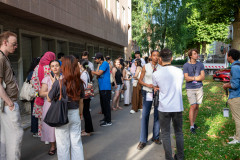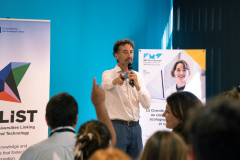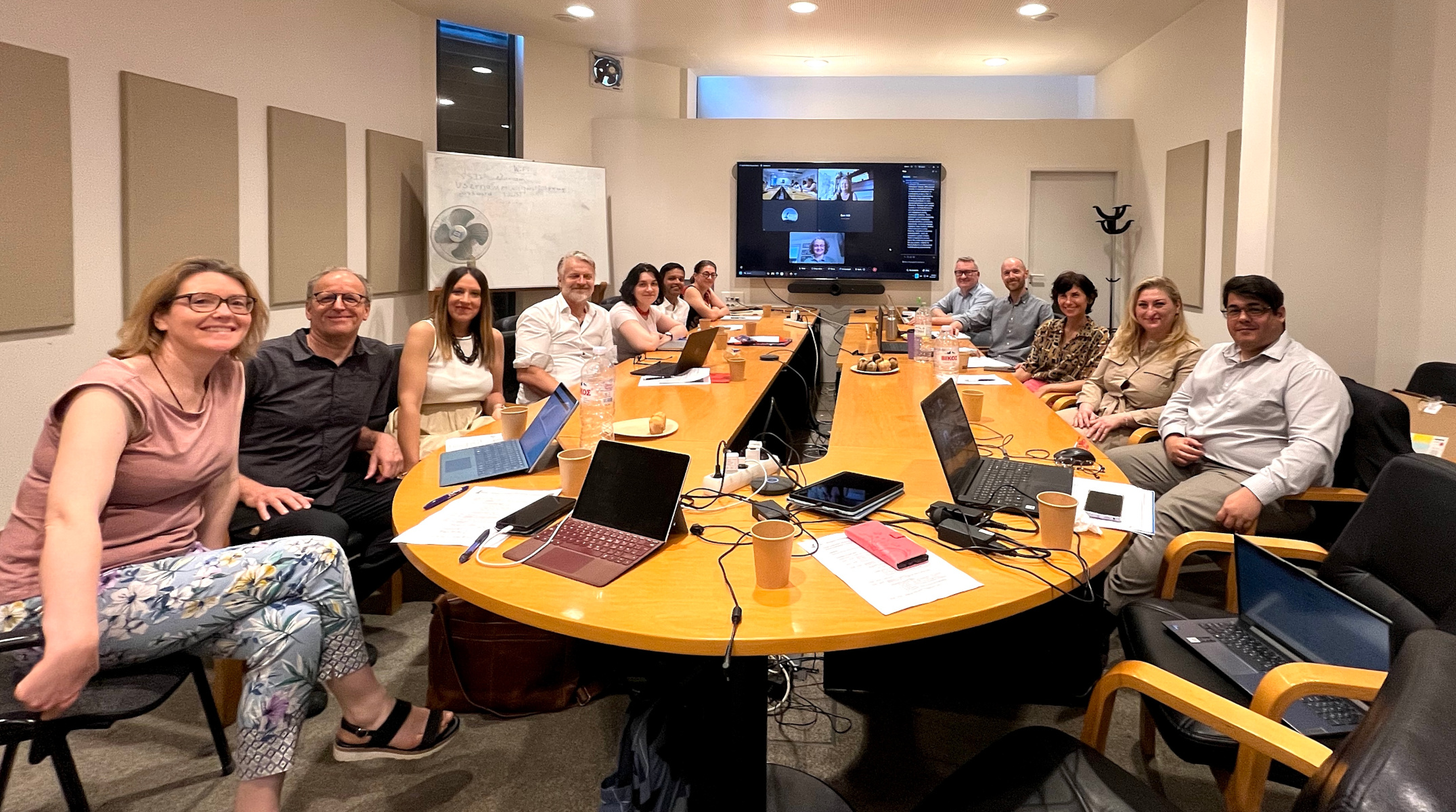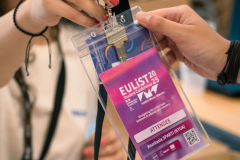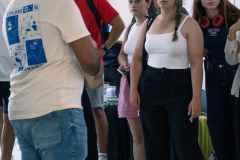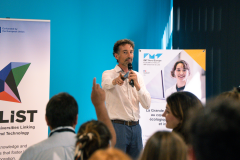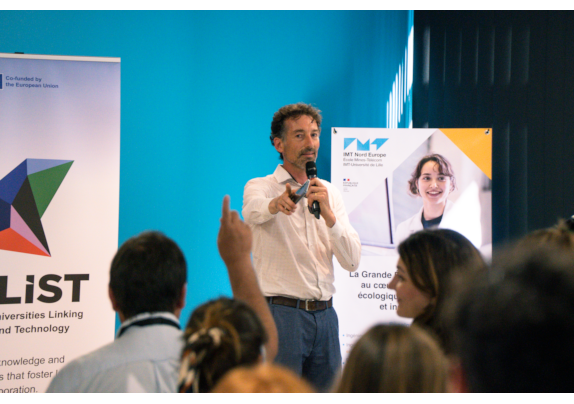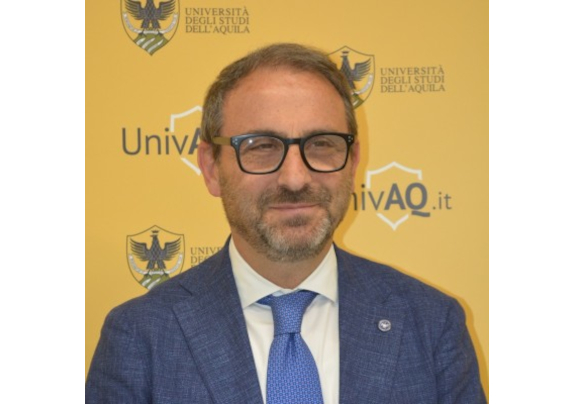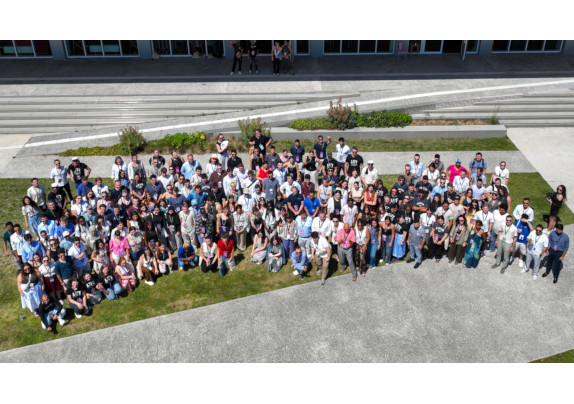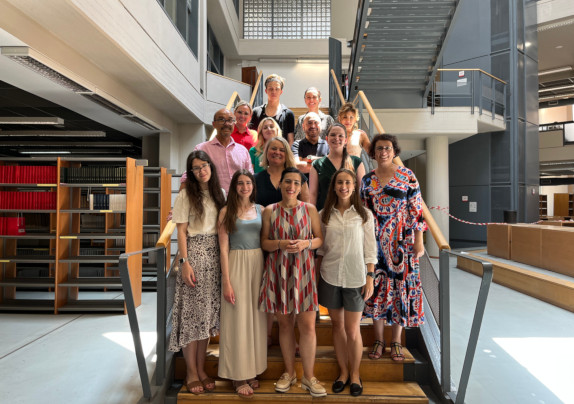EULiST Student Conference 2025 in Douai, France: A Week of Collaboration, Innovation and Cultural Connections
From June 30th to July 4th, 2025, the IMT Nord Europe in Douai, France, hosted the second edition of the EULiST Student Conference. Bringing together 200 students of all levels (undergraduate, postgraduate, and PhD), with diverse fields of study, from across the 10 EULiST partner universities and countries, this marks the alliance’s largest student event.
On 30th June, the conference opened with a warm welcome from the Mayor of Douai, Dr. Frédéric Chereau.
Day 1 – Opening and Thematic Workshops
On 1st July, a hot sunny day in Douai, the conference officially began with an inspiring Opening Ceremony. Welcoming addresses were delivered by the Director of IMT Nord Europe, Céline Fasulo, the EULiST Secretary General, Dr. Natia Gamkrelidze, the IMT Vice-President for Academic and International Affairs and EULiST Management Board member, Dr. Frédérique Vincent, and the Chair of the EULiST Management Board and Director of Internationalization at URJC, Pablo Tomás Salvadores Alonso. In addition, the ceremony featured an engaging panel discussion with the former Rector of NTUA, Professor Andreas Boudouvis, and the Policy Officer for Higher Education at the European Commission, Ioana Dewandeler, who shared valuable perspectives on the role of university alliances in shaping Europe’s educational future. Students from the organising team also took the stage to welcome participants and encourage everyone to make the most of the diverse opportunities ahead.
In the afternoon, participants took part in seven interactive workshops designed to foster group work, critical thinking, and creativity – encouraging students to think “outside the room” both figuratively and literally. The thematic workshops, a central part of the conference, were held in two sessions, Session 1 on the first day, and Session 2 on the third day. A highlight was the EULiST Digital Campus workshop, where students tested the first pilot version of the Digital Campus platform and shared their feedback.
The workshops provided students with the opportunity to tackle key topics, solve problems collaboratively, and work with peers from different countries. Participants chose workshops aligned with their interests and joined mixed groups of students, researchers, and professionals. Together, they explored issues shaping the future of academia and society, aiming to develop solutions with real impact beyond the conference.
At the end of the day, the International Evening was a memorable event, where each country’s delegation brought traditional snacks and drinks for everyone to try, giving all participants the chance to experience different European flavours.
Day 2 – Pitch Sessions, Hackathon, and Cultural Activities
The second day of the EULiST Student Conference was filled with fresh perspectives and forward-thinking ideas. The EULiST Pitch Sessions gave students the opportunity to present their academic projects and innovative solutions to some of tomorrow’s most pressing challenges. Organised into three 45-minute rounds, the sessions encouraged lively exchanges and inspired new ways of thinking.
Hackathon teams also began developing ideas with real-world applications, setting the foundation for projects that will continue to grow beyond the conference.
Participants supported each other enthusiastically, creating a positive and collaborative atmosphere.
A true highlight of the day was the inspiring keynote speech by Marianne Heiß, former CEO, advisory board member, bestselling author, and advocate for female leadership and sustainable business. In her talk, Design Your Career in International Business, she encouraged students to be bold, clear, and authentic in shaping their professional paths. Her message resonated strongly with participants, offering honest insights and practical advice for navigating the international business landscape.
In the afternoon, participants stepped outside the classroom to discover Douai’s rich heritage — exploring historic mines, visiting the planetarium, and taking a guided walking tour through the heart of the city.
Day 3 – Thematic Workshops, Poster Session, and Closing Gala
On 3rd July, the second round of thematic workshops took place. This was followed by the EULiST Poster Session, where participants had the chance to dive into exciting research, meet inspiring people, and spark new collaborations.
The day also featured a thought-provoking keynote by Dr. Tim Flohrer, Head of the Space Debris Office at the European Space Agency (ESA), and a leading expert on the growing challenge of space debris, who highlighted how science, policy, and industry must work together to ensure a sustainable and safe orbital environment.
Finally, a Closing Gala at the Louvre-Lens Museum brought together participants, partners, and guests from across Europe for a night of celebration, discovery, and connection.
Overall, the 2nd EULiST Student Conference in Douai was an enriching experience for everyone involved, providing countless opportunities for personal growth, academic development, and intercultural exchange. It was a week that embodied the shared vision of all partner institutions — fostering collaboration, innovation, and meaningful connections while shaping the future of higher education and society in Europe together.
For the full program of the Student Conference, please visit its website.






